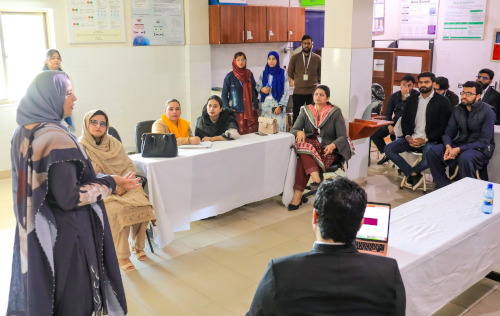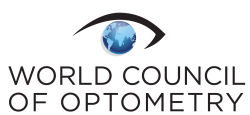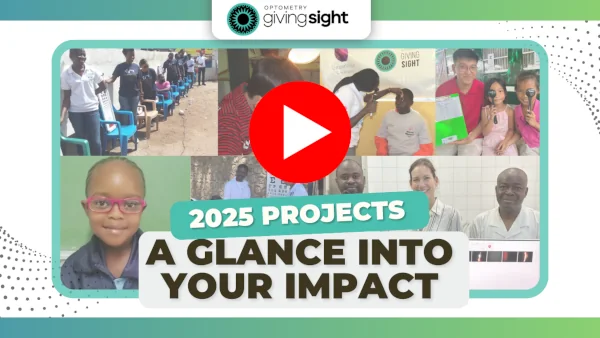With the Generous Support of our Donors in 2025:
The generous support of our donors has enabled Optometry Giving Sight (OGS) to award grants totaling nearly $1 million USD to fund the following projects, designed to provide both short-term and long-term, sustainable solutions to the issue of uncorrected refractive error globally. In all, 24 grants were awarded to 21 organizations.
As Optometry’s international charity of choice, OGS raises funds from optometrists, optometry practices, and optometry-related businesses and corporations to award annual grants for sustainable, impactful projects that expand the profession and improve access to vision care in underserved areas of the world. Since the grant program began, OGS has awarded more than 220 grants that have impacted more than 15 million people in more than 71 countries.
This life-changing work would not be possible without your support.
The 2025 grantee organizations and projects funded are:
Project Name: Himilo Eye Trust: Advancing Community-Based Eye Care in Mogadishu
Grant Recipient: Aden Adde International University
Country of Implementation: Somalia
Estimated Number of People Impacted: 10,000
Project Overview
The Himilo Eye Trust, led by Aden Adde International University, is a newly launched initiative to provide free, comprehensive eye care services in Mogadishu, Somalia. The grant will be used to establish a fully equipped eye examination center offering free exams, affordable glasses and medications, and cataract surgeries in partnership with Charity Vision Somalia.
The center will also serve as a clinical training site for optometry students, addressing the shortage of skilled eye care professionals and strengthening the future workforce. By combining service delivery with education, the project aims to reduce preventable blindness and improve visual health outcomes for underserved communities.
Objectives
- Establish a free comprehensive eye examination center in Mogadishu
- Provide free eye exams and affordable glasses and medications to 10,000+ patients
- Conduct 100+ free cataract surgeries through strategic partnerships
- Deliver hands-on clinical training to 50 optometry students from Aden Adde University
Expected Outcomes
- 10,000 patients receive free eye exams and vision correction
- 100+ cataract surgeries performed for low-income individuals
- 50 optometry students gain practical clinical experience
- Strengthened local capacity for sustainable, community-based eye care
Sustainability
The Himilo Eye Trust is designed to become self-sustaining through the affordable sale of glasses and eye drops, with a goal to cover at least 50 percent of operational costs in the first year. The project is locally led, embedded within Somali institutions, and supported by strong partnerships with the Somali Optometry Association and Charity Vision Somalia.
By integrating clinical services with optometry education, the initiative builds a pipeline of skilled professionals while meeting urgent community needs. Local ownership, financial self-reliance, and community trust form the foundation for long-term impact.
This project doesn’t just restore sight—it builds a future where quality eye care is accessible to all.
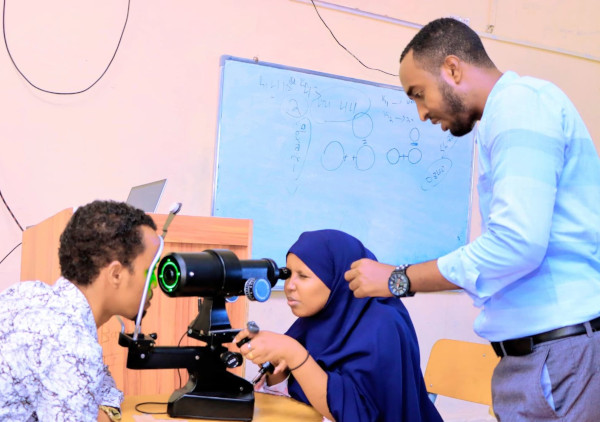
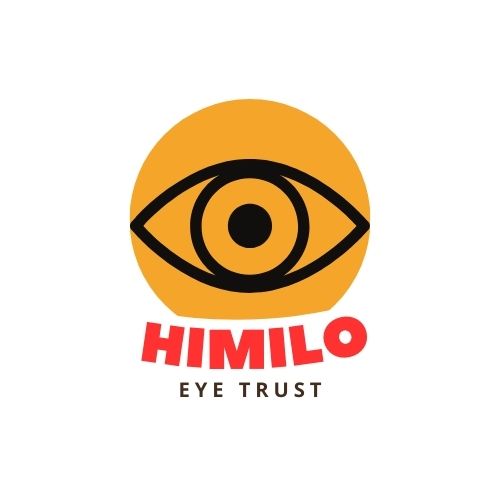
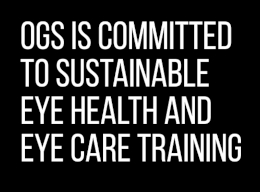
Project Name: Building an Optometry-Driven Sustainable School Eye Health Programme
Grant Recipient: African Eye Institute Trust
Country of Implementation: South Africa
Estimated Number of People Impacted: 21,000
Project Overview
This initiative delivers comprehensive school-based eye screenings, free prescription eyeglasses, and eye health education to 20,000 underserved children across 25 schools in South Africa. It also builds local capacity by training 200 teachers, 24 community-based screeners, and 20 optometrists, while expanding services to two additional provinces. The program is embedded within South Africa’s Integrated School Health Programme and aligns with national priorities for child health and education.
Objectives
- Provide vision screening for 20,000 children and free custom eyeglasses for those diagnosed with refractive errors.
- Develop formal agreements with provincial Departments of Health, as well as implement referral tracking systems
- Integrate optometry-led child eye health protocol into provincial planning documents.
- Train 24 new screeners and 200 teachers in vision screening and referral protocols.
- Distribute 20,000 eye health pamphlets and deliver educational presentations to children, parents, and educators.
Expected Outcomes
- Expanded vision screenings & eyeglass provision resulting in reducing uncorrected refractive error
- Development of agreements with provincial Departments of Health
- Implementation of referral tracking systems
- Integration of children’s vision protocol into provincial planning documents
- Increased capacity among teachers and other vision screeners
- Increased public awareness about vision health
Sustainability
The program was co-designed with the Ministries of Health and Education and integrated into public sector frameworks. Optometrists previously funded by AEI are now being absorbed into government systems. Additional sustainability measures include training school staff, mobilizing corporate and philanthropic support, and advocating for inclusion in South Africa’s National Health Insurance rollout.
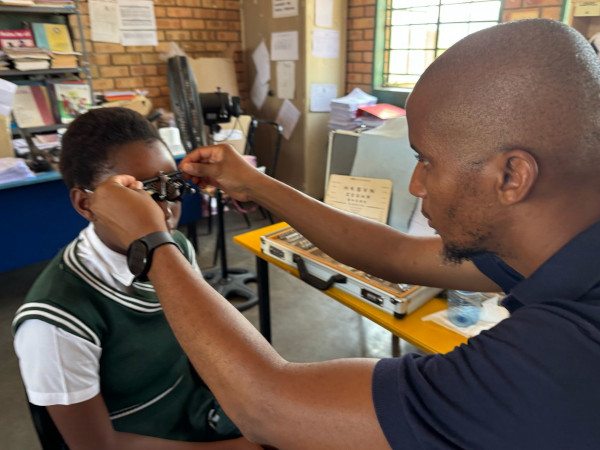
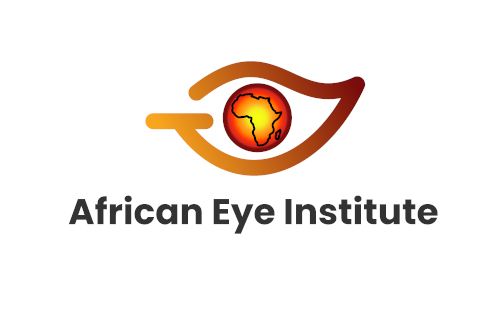

Project Name: Every Child Sees: One School at a Time – Pakistan
Grant Recipient: Berkeley Vision
Country of Implementation: Pakistan
Estimated Number of People Impacted: 150,000
Project Overview
Berkeley Vision, in partnership with CBM Pakistan and the Sindh Institute of Ophthalmology and Vision Sciences (SIOVS), will implement a comprehensive school-based eye health initiative in Jamshoro district, Sindh province. This one-year project expands Berkeley Vision’s global “Every Child Sees-One School at a Time” program to Pakistan, aiming to eliminate childhood uncorrected refractive error through sustainable, locally owned healthcare practices.
Objectives
- Provide free vision screening, refraction services, and eyeglasses to 25,000 children across 400 schools
- Train 200 healthcare workers and 50 schoolteachers in child eye health and community advocacy
- Conduct 180 community awareness sessions on eye health and myopia progression
- Build capacity of optometrists, ophthalmic technicians, and volunteer students through workshops and refresher training
- Establish referral pathways for advanced care in collaboration with SIOVS and other hospitals
Expected Outcomes
- 2,500 children and 200 adults receive free eyeglasses; 48 children receive low vision devices
- Improved educational outcomes and confidence among children with corrected vision
- Strengthened local capacity for pediatric eye care and increased eyeglass compliance
- Enhanced community awareness for an estimated 125,000 individuals
- Sustainable referral systems and government engagement for long-term integration
Sustainability
The project aligns with Pakistan’s National Integrated People-Centered Eye Care Plan (IPCEC) and leverages SIOVS’s institutional credibility to foster government ownership. Berkeley Vision will provide strategic oversight and in-kind support, while CBM Pakistan and SIOVS ensure local implementation and continuity. Data-driven monitoring, quarterly reporting, and stakeholder engagement will reinforce transparency and long-term impact.
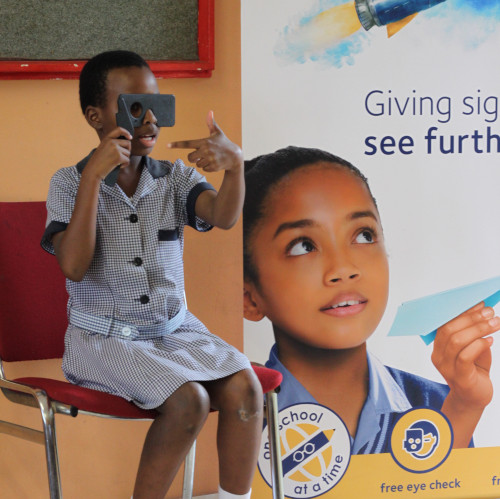
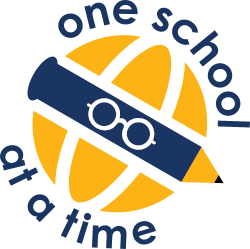


Project Name: Vision for All: Enhancing Access to Low Vision Services in Pakistan
Grant Recipient: Brien Holden Foundation
Country of Implementation: Pakistan
Estimated Number of People Impacted: 2,500
Project Overview
With support, the Brien Holden Foundation is implementing a targeted initiative to expand low vision services in Pakistan. This grant enables the establishment of four new clinics, the training of 15 optometrists, and the launch of public awareness campaigns—all aimed at improving access to care for underserved populations.
The program builds on the Foundation’s decade-long presence in Pakistan, where it has supported 51 clinics to date. By integrating low-vision services into secondary and tertiary hospitals, this initiative strengthens the national eye health infrastructure and ensures continuity of care.
Objectives
- Establish 4 low vision clinics in public and charity hospitals
- Train 15 optometrists in clinical and functional low vision management
- Distribute free low vision devices to patients in need
- Conduct seminars and lectures to raise awareness among health professionals and the public
Expected Outcomes
- 2,500 patients receive low vision assessments and assistive devices
- 15 optometrists equipped to deliver specialized care
- Over 1,000 individuals engaged through public education efforts
- Enhanced integration of low vision services into Pakistan’s secondary health system
Sustainability
The program is designed for long-term impact, with services embedded in existing hospital infrastructure and optometrists trained to maintain continuity. Collaboration with the Pakistan Optometric Society and the National Committee for Eye Health ensures alignment with national priorities and facilitates future program growth.
By investing in both human capacity and clinical infrastructure, this initiative restores not only vision—but independence, dignity, and opportunity for thousands across Pakistan.



Project Name: Vietnam Optometry Education Development
Grant Recipient: Brien Holden Foundation
Country of Implementation: Vietnam
Estimated Number of People Impacted: 10,000+
Project Overview
The Brien Holden Foundation, with support from Optometry Giving Sight (OGS), is advancing optometry education and eye care access in Vietnam through a grant-supported initiative focused on strengthening two government-run optometry schools: Hanoi Medical University (HMU) and Pham Ngoc Thach University of Medicine (UPNT). Both schools were established in part by the Foundation and OGS.
The program equips the universities’ Academic Vision Centres (AVCs) with specialized clinical tools, trains faculty and students, and delivers outreach services to underserved populations. It also advocates for full professional recognition of optometry within Vietnam’s national health system.
This initiative builds on over a decade of foundational work, including the successful integration of optometry into Vietnam’s higher education system and the establishment of AVCs that serve as both clinical training hubs and community care centers.
Objectives
- Strengthen Human and Institutional Capacity
- Promote Government Recognition of Optometry
- Advocate for Optometry as an Independent Profession
Expected Outcomes
- 10,000 individuals receive eye care services through outreach and clinical training
- 50 optometry students gain enhanced practical experience
- 24 junior faculty upskilled in clinical education and research
- Increased visibility and credibility of optometry as a standalone profession
- Strengthened institutional infrastructure and stakeholder engagement
Sustainability
Since 2013, the Foundation’s optometry development efforts in Vietnam have prioritized sustainability. The universities have secured government recognition, funding, and dedicated clinical spaces for optometry education. The AVCs provide hands-on training and generate income through services and optical product sales. Continued collaboration with ministries, universities, and community stakeholders ensures long-term viability and integration into Vietnam’s public health system.
This initiative not only builds clinical capacity—it builds a future where optometry is fully recognized, locally led, and accessible to all.
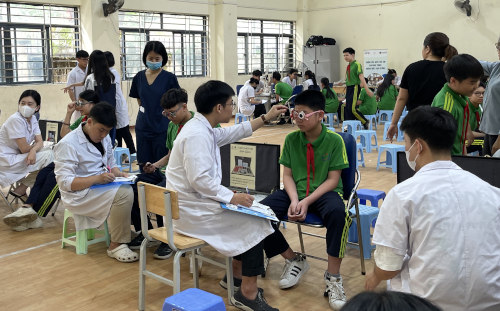


Project Name: Strengthening Optometry Education and Vision Services in Guyana and Trinidad & Tobago
Grant Recipient: Canadian Vision Care
Country of Implementation: Guyana and Trinidad & Tobago
Estimated Number of People Impacted: 10,000
Project Overview
Canadian Vision Care has been awarded a grant to support optometry education and expand access to vision care in Guyana and Trinidad & Tobago. This initiative builds on longstanding partnerships with the University of Guyana and the University of the West Indies, aiming to strengthen clinical training, provide essential equipment, and deliver outreach services to underserved communities.
The program will equip university clinics with critical diagnostic tools, support faculty development, and facilitate student-led outreach events. By investing in both education and service delivery, the initiative enhances the quality and reach of optometric care across the Caribbean.
Objectives
- Provide essential diagnostic and dispensing equipment to university optometry clinics
- Support faculty development and student training in clinical optometry
- Conduct outreach clinics to serve low-income and rural populations
- Strengthen institutional partnerships and regional collaboration in optometric education
Expected Outcomes
- Clinical skill development for optometry students through hands-on screenings
- Improved access to eye care for underserved populations in remote villages
- Direct care for 3,000+ patients, with thousands more benefiting indirectly through enhanced local optometrist training
- Creation of rural clinics in hard-to-reach areas
- Strengthened outreach programs at the University of West Indies
- Increased diagnostic capacity for local Ministry of Health ophthalmic staff due to student involvement and training
Sustainability
The initiative is embedded within the academic infrastructure of both universities, ensuring long-term integration into curricula and clinical rotations. Equipment will be maintained by university staff, and outreach clinics will be sustained through student engagement and community partnerships. Canadian Vision Care will continue to provide mentorship and logistical support, while local institutions take ownership of implementation and expansion.
This project not only improves access to eye care—it builds a resilient, regionally connected optometry workforce equipped to serve with skill, compassion, and purpose.
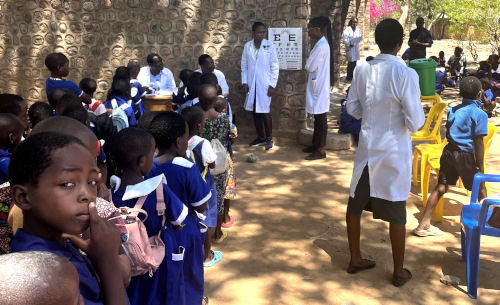
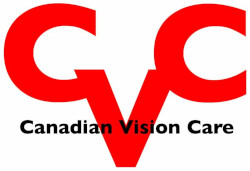

Project Name: Clinical Optometry Training and Outreach in the Philippines
Grant Recipient: Canadian Vision Care
Country of Implementation: Philippines
Estimated Number of People Impacted: 100,000 patients annually
Project Overview
Canadian Vision Care has been awarded a grant to support the Eye Train initiative—a long-standing clinical teaching and outreach program in the Philippines. Operating as a full-time teaching clinic for over 12 years, the Eye Train has served more than 120,000 patients while training Filipino and Canadian optometry students in refractive error diagnosis and treatment.
This grant will enhance the clinic’s capacity to deliver high-volume, high-quality eye care while deepening clinical training for students. Outreach clinics will be conducted during peak periods, especially when Canadian optometry teams visit the Philippines in January and May, creating immersive learning experiences and expanding access to care in underserved communities.
Objectives
- Train Filipino optometry students year-round in clinical optometry
- Host Canadian optometry students for intensive outreach and teaching clinics
- Provide refractive error screening and treatment to over 100,000 patients annually
- Strengthen the Eye Train clinic as a regional hub for optometric education and service
Expected Outcomes
- 100,000 patients receive vision care annually through the Eye Train clinic
- 2,500+ patients served during Canadian-led outreach clinics
- 1 million future patient encounters projected through trained graduates
- Enhanced clinical competency and cross-cultural collaboration among optometry students
Sustainability
The Eye Train is a permanent, locally managed clinic with deep institutional roots and a proven track record. Its integration into optometry school curricula ensures ongoing student engagement and skill development. Canadian Vision Care and its partner, the SPECS Foundation, will continue to co-administer the program, with funding allocated across key phases to support equipment, travel, and outreach logistics. The initiative’s long-term sustainability is anchored in local ownership, continuous training, and a shared commitment to expanding access to vision care.
This program not only transforms how students learn—it transforms how communities see. It exemplifies how education and service can intersect to create lasting impact—empowering future optometrists while restoring sight to thousands in need.
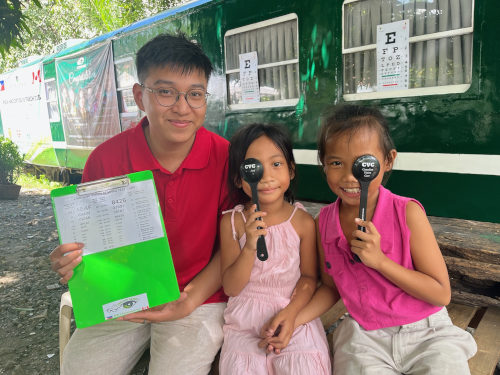


Project Name: The Optometry Education Project
Grant Recipient: Charis Vision and Health Mission
Country of Implementation: Nigeria
Estimated Number of People Impacted: 8,000
Project Overview
Charis Vision and Health Mission has been awarded a grant to strengthen optometry education and service delivery in Cross River State, Nigeria. This initiative will equip Arthur Jarvis University’s optometry program with essential ophthalmic tools and resources, while expanding access to primary eye care in surrounding underserved communities.
The project addresses a critical shortage of trained optometrists in southeastern Nigeria. By enhancing clinical training, launching community outreach, and building local capacity for equipment maintenance, the program lays the foundation for sustainable, high-quality eye care in a region of over 25 million people.
Objectives
- Establish a project management office and formalize implementation partnerships
- Improve optometry education through procurement of ophthalmic equipment and digital learning tools
- Deliver community-based eye care and health education campaigns
- Train a local technician in ophthalmic equipment maintenance
- Monitor and evaluate project progress through quarterly and annual reviews
Expected Outcomes
- Installation of essential ophthalmic equipment at Arthur Jarvis University
- Four community outreach and education campaigns per year
- 900 individuals screened and 3,000 reached through eye health education
- 100 patients examined and treated at the university clinic
- One technician trained in equipment maintenance
- Improved student performance and clinic utilization metrics
Sustainability
CharisHealth will contribute office space, staffing, and project oversight, while Arthur Jarvis University will integrate the equipment into its accredited OD curriculum. The trained technician will ensure long-term functionality of equipment, reducing replacement costs. Community outreach will build awareness and demand for optometric services, while ongoing monitoring will guide future funding and expansion.
This project not only elevates optometric education in Nigeria but also brings vital eye care to communities long underserved—advancing equity, education, and public health in tandem.
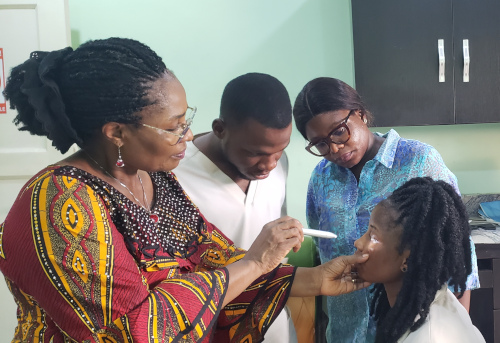
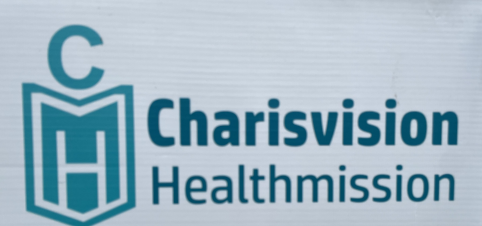

Project Name: Eyes on Equity
Grant Recipient: Envision EyeCare for All
Country of Implementation: United States (Oregon)
Estimated Number of People Impacted: 1,360 individuals annually
Project Overview
Envision EyeCare for All is a mobile vision care initiative designed to deliver comprehensive eye health services to marginalized, underserved, and transient populations across rural Oregon. The “Eyes on Equity” project addresses systemic inequities in access to vision care by deploying a fully customized commercial mobile unit equipped with full-sized clinical tools. It targets communities historically excluded from primary eye care, including migrant farmworkers, Native American fishing villages, unhoused individuals, and children in low-income households in the counties of Hood River, Wasco, Gilliam, Sherman, and Morrow.
Objectives
- Provide free, comprehensive eye exams and eyeglasses
- Host outreach events with vision screenings and the distribution of safety eyewear, sunglasses and eye drops to transient populations during farmworker season
- Integrate a certified Community Health Worker (CHW) into mobile vision clinics
- Train optometry students in public health and outreach care
- Advocate with state and national coalitions to promote policy changes that embed optometry in primary care systems
Expected Outcomes
- Increased access to comprehensive eye exams and glasses
- Improved early detection and treatment of vision problems
- Enhanced educational and occupational performance among beneficiaries
- Strengthened referral networks and follow-up care coordination
- Rich data collection on social determinants of health and barriers to care
- Annual impact reporting for transparency and program refinement
Sustainability
The sustainability of the Envision EyeCare for All initiative is driven by a multifaceted strategy that combines financial resilience, community integration, and systemic advocacy. A reliable revenue stream is secured through Medicaid billing, while grants, sponsorships, and in-kind donations diversify funding and ensure adaptability. Deep partnerships with schools, clinics, and health centers foster local ownership and long-term engagement. Workforce development is central, with Community Health Workers and optometry students receiving hands-on training to build local expertise. At the policy level, the initiative engages in statewide and national advocacy to embed vision care into broader health systems, promoting lasting structural support for equitable eye health access.
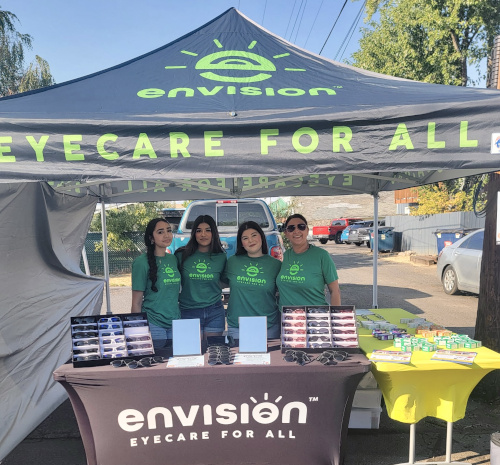
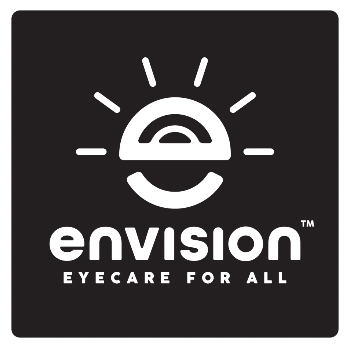

Project Name: Expanding Vision Services for Unhoused and Underserved Communities in California
Grant Recipient: Healing California
Country of Implementation: United States
Estimated Number of People Impacted: 2,000
Project Overview
Healing California has been awarded a grant to expand its mobile vision care services for unhoused and underserved populations across California. This initiative will increase access to free eye exams and prescription glasses for individuals who face systemic barriers to care—particularly those experiencing homelessness, poverty, or living in transitional housing.
With a fleet of mobile clinics and a network of volunteer optometrists, Healing California delivers compassionate, high-quality services directly to shelters, community centers, and outreach events. The program not only restores sight but also restores dignity, confidence, and opportunity for those most in need.
Objectives
- Provide free eye exams and prescription glasses to 1,000 individuals
- Expand mobile clinic outreach to new regions across California
- Engage volunteer optometrists and opticians in service delivery
- Strengthen partnerships with shelters, nonprofits, and community health organizations
Expected Outcomes
- 1,000 patients served through mobile clinics
- 1,000 pairs of prescription glasses dispensed
- 20 outreach events conducted in collaboration with local partners
- Increased volunteer engagement and service capacity
Sustainability
Healing California operates on a volunteer-driven model, leveraging in-kind support from optometrists, opticians, and community organizations. The mobile clinics are fully equipped and maintained through private donations and grants, ensuring continued service delivery beyond the grant period. The organization’s strong network of partners and proven operational model position it for long-term impact and scalability.
This initiative brings vision care to the frontlines of social need—empowering individuals to see clearly, live fully, and move forward with confidence.
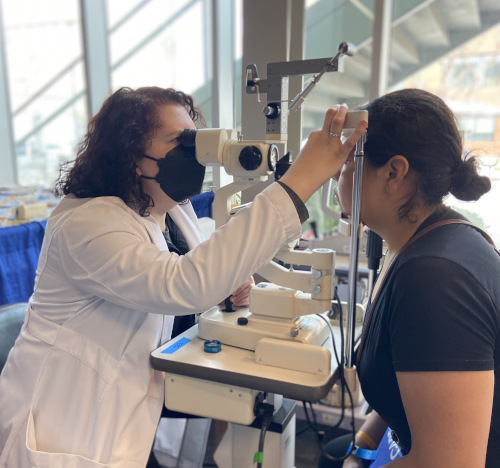
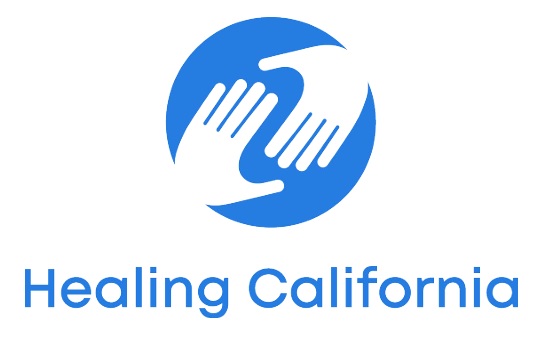

Project Name: Strengthening Pediatric Optometry in Mozambique
Grant Recipient: Light for the World International
Country of Implementation: Mozambique
Estimated Number of People Impacted: 112 in year one and more in subsequent years
Project Overview
Light for the World International has been awarded a grant to advance pediatric optometry training in Mozambique. This initiative builds on nearly two decades of eye health collaboration and is part of the comprehensive 10-year “1, 2, 3, I Can See!” program to develop sustainable child eye care services within the public health system.
The project will conclude the second edition of a specialized pediatric optometry training and launch a refresher course to deepen skills among Mozambican optometrists and ophthalmologists. It also strengthens local training capacity by supporting three national trainers and expands access to vision screening and subsidized eyeglasses for children in schools and orphanages.
Objectives
- Deliver hands-on pediatric optometry training to 12 eye health professionals
- Consolidate teaching capacity of three Mozambican trainers
- Conduct school-based screenings and provide subsidized eyeglasses
- Promote sustainable, equitable child eye care through public health integration
Expected Outcomes
- 12 professionals (10 optometrists, 2 ophthalmologists) trained in pediatric refraction and optical correction
- 10–20 professionals participate in refresher training
- 3 national trainers certified and prepared to lead future sessions
- 100 children screened; subsidized eyeglasses provided to those in need
- Enhanced pediatric optometry services in six provinces
Sustainability
This initiative is embedded within Mozambique’s national child eye health strategy and fully endorsed by the Ministry of Health. All trainees are government-employed and will be placed in provincial hospitals to serve rural populations. The training model includes a certified curriculum, e-learning platform, and hands-on mentorship, ensuring long-term capacity building. The Mozambican Optometry Association is actively involved in coordination, and future training rounds will be locally led and integrated into professional development pathways.
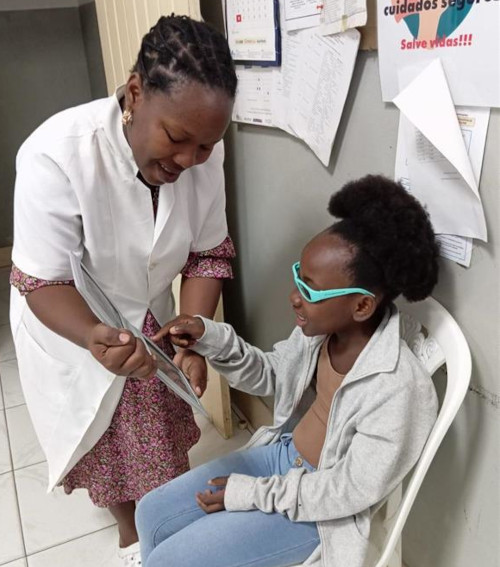
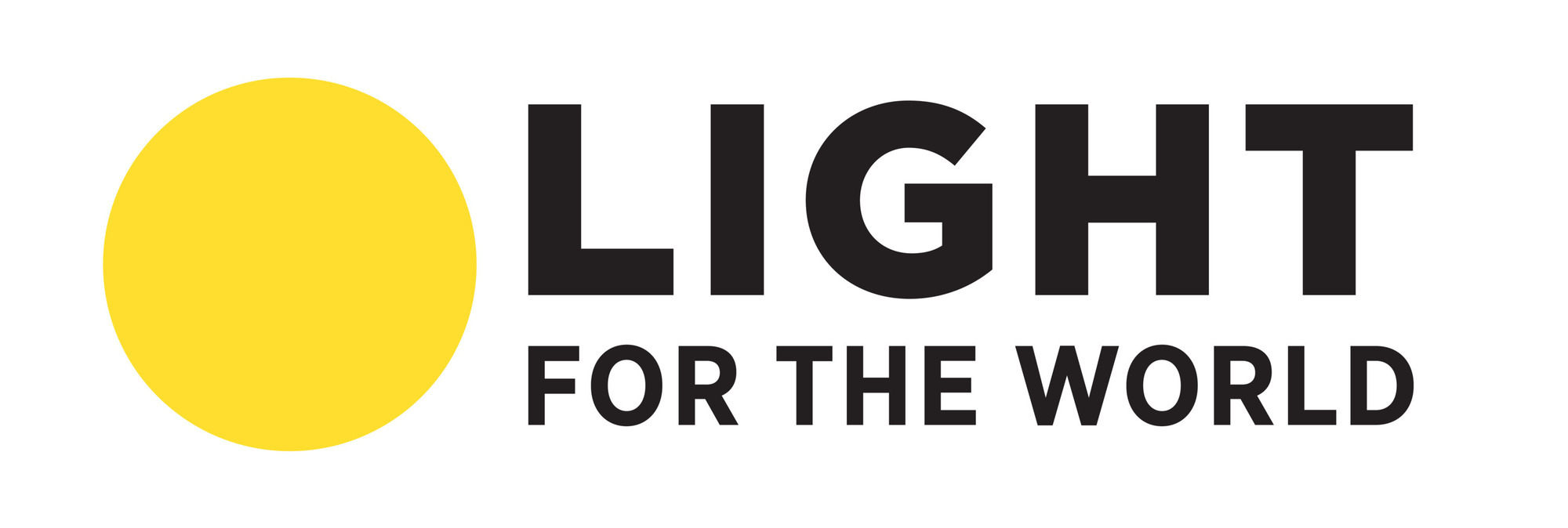

Project Name: Mission Jyot – Establishing a Vision Centre in Fatehpur District, Uttar Pradesh
Grant Recipient: Mission for Vision
Country of Implementation: India
Estimated Number of People Impacted: 18,000+
Project Overview
Mission for Vision has been awarded a grant to launch a permanent Vision Centre in the rural district of Fatehpur, Uttar Pradesh. This initiative aims to eliminate preventable blindness among marginalized populations by delivering comprehensive, high-quality primary eye care directly within the community.
The Vision Centre will serve as a sustainable, community-rooted facility offering screenings, treatment for refractive errors, referrals for cataract and glaucoma, and school-based eye health programs. The project is part of Mission for Vision’s long-term strategy to expand equitable eye care access across underserved regions of India.
Objectives
- Establish a permanent Vision Centre serving a population of 50,000 people
- Screen 18,660 individuals over three years for eye health conditions
- Provide treatment for refractive errors, cataracts, and other conditions
- Raise community awareness and promote early intervention
- Generate evidence to support advocacy and education in eye health
Expected Outcomes
- 7,440 people screened at the Vision Centre
- 8,220 individuals screened via outreach camps
- 1,472 pairs of eyeglasses dispensed
- 690 cataract surgeries enabled
- 3,000 children screened in schools; 120 provided eyeglasses
- 7,520 individuals reached through door-to-door awareness efforts
Sustainability
The Vision Centre will operate as a social enterprise, achieving financial sustainability within 3–4 years through modest user fees and eyeglass sales. Mission for Vision will collaborate with Shri Sadguru Seva Sangh Trust, a trusted local hospital partner, to ensure clinical excellence and community ownership.
This initiative not only restores sight—it restores dignity, opportunity, and economic participation for thousands of individuals in one of India’s most underserved regions.



Project Name: NOSS Optical Lab – Advancing Practical Optometry Education in Nepal
Grant Recipient: Nepal Optometry Students’ Society (NOSS)
Country of Implementation: Nepal
Estimated Number of People Impacted: 1,500 and many more in subsequent years
Project Overview
The Nepal Optometry Students’ Society has been awarded a grant to establish the first fully equipped optical laboratory for optometry students in Nepal. This pioneering initiative addresses a critical gap in practical training, empowering students with hands-on experience in optics and dispensing skills essential for delivering quality eye care across the country.
Led by a diverse and passionate student executive team, and guided by faculty from Maharajgunj Medical Campus, the project will transform optometric education by integrating practical learning into the curriculum and fostering a new generation of confident, capable eye care professionals.
Objectives
- Establish a fully functional optical laboratory for student training
- Enhance clinical skills in optics, refraction, and dispensing
- Promote sustainability and local capacity-building through student-led management
- Integrate the lab into outreach and vision screening programs
Expected Outcomes
- 1,500 students, educators, and practitioners benefit from improved training access
- Increased competency in practical optometry among graduates
- Launch of routine workshops, seminars, and pilot training sessions
- Strengthened institutional collaboration across Nepal’s optometry schools
Sustainability
The lab will be managed by NOSS through a structured leadership transition protocol, ensuring continuity across student cohorts. Equipment will be used in ongoing training, outreach, and research activities, with oversight from faculty advisors. Internal funds from membership fees, journal advertising, and tool sales will support maintenance and future expansion. The project is designed to be replicable across other institutions, serving as a model for optometric education reform in Nepal.
This initiative is more than a facility—it’s a foundation for equity, excellence, and empowerment in eye care education.
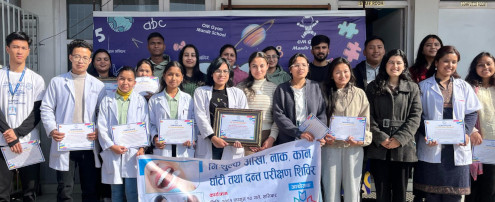
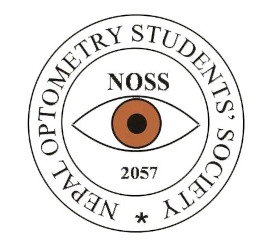

Project Name: Equipping the Future – A Support Program for Undergraduate Optometry Students Worldwide
Grant Recipient: OPTOGLOBE
Country of Implementation: Global (25 countries represented)
Estimated Number of People Impacted: 25 in year one and many more in subsequent years
Project Overview
OPTOGLOBE has been awarded a grant to launch the pilot phase of “Equipping the Future,” a global initiative that provides essential optical instruments to optometry students in underserved regions. Selected based on leadership, academic excellence, and advocacy, these students face significant barriers to clinical training due to lack of access to basic tools. This program empowers them to deliver quality eye care in their communities and strengthens the global optometry workforce.
Objectives
- Equip 25 optometry students with essential clinical instruments to expand availability of eye care
- Alleviate financial barriers to training in underserved regions
- Establish a global foundation for sustained student support
- Launch nonprofit registration and strategic partnerships for long-term impact
Expected Outcomes
- 25 optometry students receive optical kits tailored to their training needs
- Increased clinical readiness and confidence among beneficiaries
- Strengthened global student network and advocacy capacity
- Published impact report and success stories to support future fundraising
Sustainability
OPTOGLOBE is pursuing U.S. nonprofit registration to expand its funding base and institutional reach. The project is designed with local ownership in mind—each participating country has a designated student coordinator to manage distribution and feedback. Strategic partnerships with pharmaceutical companies, equipment manufacturers, and academic institutions will ensure recurring support and scalability.
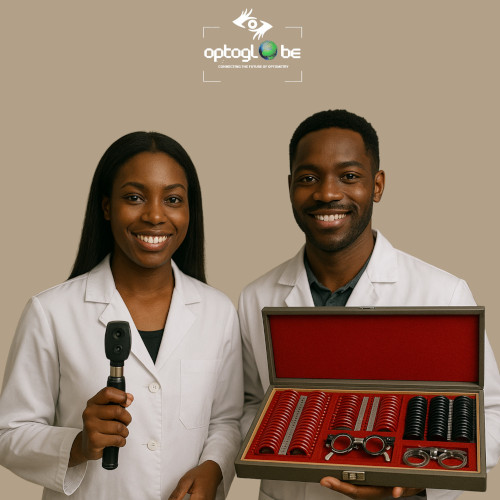
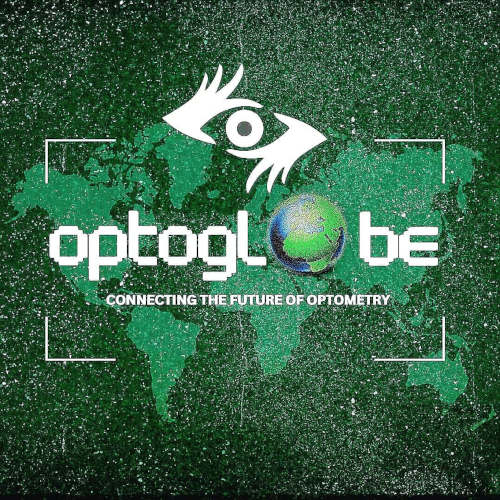

Project Name: Developing the Strategic Eyecare Plan for Zanzibar
Grant Recipient: Queen’s University Belfast
Country of Implementation: Tanzania
Estimated Number of People Impacted: 2,000,000
Project Overview
Queen’s University Belfast has been awarded a grant to support the foundational phase of revising Zanzibar’s National Eye Care Plan. This initiative aims to formally integrate optometry and low vision services into the public health system—addressing critical gaps in workforce capacity, service delivery, and policy infrastructure across the islands.
Working in close collaboration with the Ministry of Health, the project will generate evidence, build stakeholder consensus, and develop a sustainable roadmap for affordable, government-led vision care. This effort represents a pivotal shift from fragmented NGO-led interventions to a nationally owned, systems-level approach to eye health.
Objectives
- Conduct a rapid situational analysis of optometry and low vision services in Zanzibar
- Facilitate multi-stakeholder workshops to build consensus and co-create a strategic roadmap
- Develop a sustainable eyeglass provision model tailored to Zanzibar’s context
- Advocate for a dedicated government budget line for optometry and low-vision services
- Finalize and submit the revised National Eye Health Strategic Plan for 2028–2032
Expected Outcomes
- Completion of situational analysis and gap report endorsed by the Ministry of Health
- Engagement of 30+ stakeholders in policy workshops
- Delivery of a revised National Eye Care Plan with formal inclusion of optometry and low vision care
- Draft business model for affordable eyeglass provision
- Submission of policy briefs and budget proposals to the Ministry of Health and Ministry of Finance
Sustainability
This initiative is embedded within Zanzibar’s national health planning process, ensuring long-term institutional ownership. By aligning with Universal Health Coverage strategies and WHO/IAPB guidance, the revised plan will establish optometry and low vision care as essential services.
Queen’s University Belfast will provide ongoing academic and technical support, while local partners—including Vision Care Foundation—contribute in-kind expertise and resources. The project also lays the groundwork for future funding to support implementation, training, and scale-up across Tanzania and East Africa.
This initiative transforms vision care from a peripheral service into a cornerstone of public health—empowering millions with the clarity, dignity, and opportunity that come with sight.
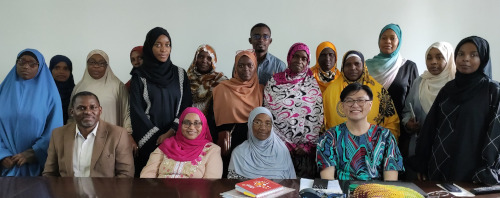


Project Name: See Better Learn Better – School-Based Vision Care and Optometry Training
Grant Recipient: See Better Learn Better Jamaica, LTD
Country of Implementation: Jamaica
Estimated Number of People Impacted: 7,500
Project Overview
See Better Learn Better Jamaica, LTD has been awarded a grant to expand its long-standing school-based vision care initiative across Jamaica’s Westmoreland and Hanover parishes. This program delivers comprehensive eye care to school children while training Caribbean and American optometrists in pediatric outreach and sustainable service models.
Founded in 2015 and endorsed by Jamaica’s Ministry of Health and Wellness, the program bridges a critical gap in pediatric eye care. With only one public clinic on the island serving children—and no national screening initiative—See Better Learn Better provides essential refractive services, medical referrals, and eyeglasses to thousands of students annually. The initiative also fosters professional development for optometry students and recent graduates from the University of the West Indies and Indiana University, cultivating a new generation of practitioners committed to equitable care.
Objectives
- Conduct school-based clinics across 17 returning schools and 3 new partner schools
- Train 8–12 optometry students or alumni from the University of the West Indies in pediatric outreach
- Provide hands-on training for 2 Jamaican optometrists and 4 local volunteers in opticianry skills
- Maintain charity status and strengthen collaboration with Jamaica’s Ministry of Health and Wellness
Expected Outcomes
- Screen and examine over 7,500 children
- Dispense prescription glasses and refer children for advanced medical care
- Train 12 Caribbean optometry students, 2 Jamaican optometrists, and 4 local opticians
- Host clinics staffed by residency-trained pediatric optometrists and supported by Indiana University
Sustainability
The program is deeply embedded in Jamaica’s public health and education systems, with ongoing support from the Ministry of Health and Wellness and local Rotary Clubs. Its board is 75 percent Jamaican, and the initiative is registered as a national charity. By training Caribbean-born optometrists and integrating with local institutions, See Better Learn Better is transitioning toward full local ownership—ensuring long-term viability and impact.
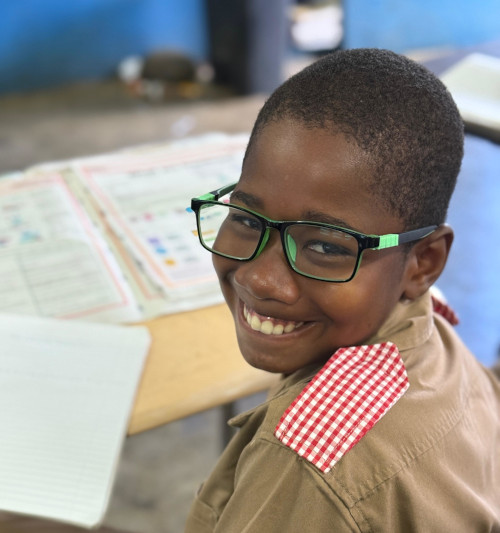


Project Name: Expanding Special Olympics Opening Eyes Vision Care Programming
Grant Recipient: Special Olympics
Country of Implementation: Ghana, United States, and Spanish-speaking countries in Latin America
Estimated Number of People Impacted: 4,000
Project Overview
Special Olympics International will expand its Opening Eyes program to improve vision care access for individuals with intellectual disabilities (ID) across Ghana, the U.S., and Latin America. This initiative builds on a long-term strategy to deliver inclusive, high-quality eye health services while training eye care professionals to better serve this underserved population.
Objectives
- Provide vision screenings and prescription glasses to at least 2,100 individuals with ID
- Train 1,800 eye care professionals and optometry students through in-person and virtual sessions
- Raise awareness and shift attitudes among eye care providers toward inclusive care
- Collect and analyze screening data to advocate for improved eye health services for people with ID
Expected Outcomes
- Increased access to vision care for individuals with ID in targeted regions
- Improved clinical competency among eye care professionals working with ID populations
- Strengthened local capacity through partnerships with universities and community organizations
- Enhanced visibility and sustainability of Opening Eyes programming at major events, including the 2026 Special Olympics USA Games
Sustainability
Special Olympics will build local capacity by engaging universities, community partners, and volunteers. Training materials will be translated to reach new audiences in Latin America, and all activities will be led by local chapters to ensure long-term ownership. Evaluation tools—including standardized event tracking, quality assurance protocols, and virtual learning platforms—will monitor progress and inform future expansion.



Project Name: Mobile Optometry Outreach for Elderly Care in Montreal
Grant Recipient: University of Montreal, School of Optometry
Country of Implementation: Canada
Estimated Number of People Impacted: 165 in the first year and more in subsequent years
Project Overview
The University of Montreal (U of M) has been awarded a grant to establish a mobile optometry teaching clinic that will deliver essential eye care services directly to the residents of Pavillon Alfred-Desrochers (PAD), a long-term care facility affiliated with the Montreal University Institute for Geriatrics (IUGM).
This initiative builds on the university’s longstanding commitment to geriatric optometry and community outreach. By equipping a mobile unit with portable diagnostic tools and integrating its use into the fifth-year optometry curriculum, the program ensures that frail, underserved seniors—many of whom face mobility challenges and cognitive impairments—receive high-quality, on-site eye care. The project also enhances experiential learning for U of M’s optometry students, preparing them to serve vulnerable populations with compassion and clinical excellence.
Objectives
- Reduce vision impairment among PAD’s elderly residents
- Provide hands-on geriatric optometry training for students
- Establish sustainable, on-site eye care services within PAD
Expected Outcomes
- Serve 100+ PAD patients annually
- Deliver 24 student-days of clinical teaching per year
- Facilitate access to affordable eyewear through ÉOUM’s University Vision Clinic (CUV)
- Track impact via patient visits, surgical referrals, and student evaluations
Sustainability
The program’s longevity is secured through U of M’s operating budget, which covers faculty and program management costs. With strong institutional support and integration into the school’s optometry curriculum, the mobile clinic is poised to become a permanent fixture in Quebec’s long-term care landscape.
This project not only addresses a critical gap in vision care for elderly populations but also exemplifies the university’s dedication to inclusive, community-based education and health equity.
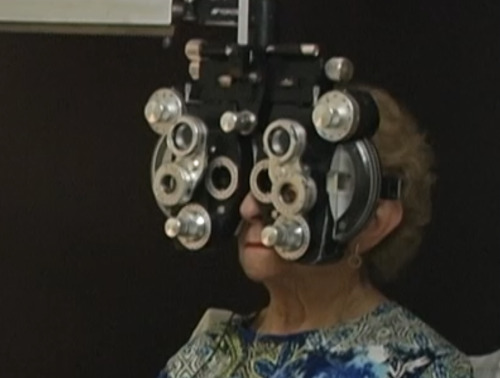


Project Name: Haiti Optometry Program
Grant Recipient: University of Montreal (UofM) – International Health Unit
Country of Implementation: Haiti
Estimated Number of People Impacted: 56 students and 6000 patients in the next 12 months and more in subsequent years
Project Overview
Developed in collaboration with the School of Optometry at the State University of Haiti (EOH), the project addresses the critical shortage of qualified visual health providers and the treatment of refractive errors in Haiti. By strengthening academic training, clinical capacity, and professional integration, the program expands access to high-quality eye care, particularly in underserved areas. Through structured internships, remote teaching and faculty development, the program builds a sustainable foundation for the optometry profession in Haiti.
Objectives
- Enhance the quality of teaching and learning by strengthening the training program at EOH
- Support the sustainability of the program through the development of local faculty and progressively reducing reliance on external lecturers
- Increase the number of qualified visual health providers to deliver quality eye care to the Haitian population, especially in underserved areas
- Promote the optometry profession in Haiti
Expected Outcomes
- Completion of clinical internships by students from the 2025 (3 students) and 2026 (8 students) cohorts at the Cathy Pearson & Fortune Previl Memorial Clinic, providing direct patient care and practical training (~25 patients per day per intern)
- Graduation of the 2026 cohort (8 students) from the EOH Optometry program
- Integration of two (2) EOH graduates into teaching roles, supported by external lecturers, to strengthen local faculty capacity and reduce reliance on outside support
- Recruitment and preparation of new graduates (1 to 2) as future faculty members to ensure program continuity and sustainability
- Conditions permitting, a Haitian delegation to visit UoM to strengthen collaboration and reinforce support and advocacy for the recognition of optometry as a profession in Haiti
Sustainability
The program’s sustainability strategy combines academic, institutional, and professional reinforcement. Locally trained faculty are progressively integrated into teaching, reducing long-term dependence on external lecturers. Clinical partnerships provide training sites for students and employment pathways for graduates, ensuring that care reaches communities beyond Port-au-Prince (EOH location). Parallel support and advocacy efforts with UEH and the Ministries of Health and Education promote the formal recognition of optometry diplomas and the profession itself, anchoring optometry within Haiti’s health system.
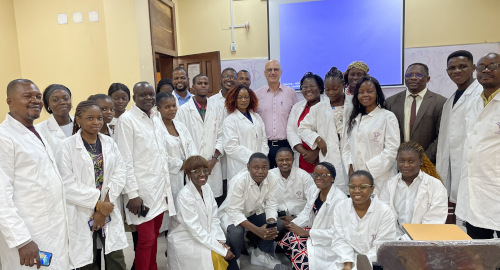


Project Name: Francophone Optometry Program – Advancing Primary Eye Care in Emerging Regions
Grant Recipient: University of Montreal – International Health Unit
Country of Implementation: Democratic Republic of Congo, Togo, Lebanon, Vietnam, Mali
Estimated Number of People Impacted: 90 optometry students in year one and many more in subsequent years, plus the patients these students will serve upon graduation
Project Overview
The University of Montreal, through its International Health Unit and School of Optometry, is leading a transformative initiative to establish and strengthen optometry education in underserved francophone countries. With support from Optometry Giving Sight, this program aims to address the critical shortage of trained eye care professionals and improve access to refractive services in regions where optometry is nascent or nonexistent.
The program leverages a multidisciplinary team—including ophthalmology, public health, and academic leadership—to support curriculum development, infrastructure planning, equipment sourcing, and advocacy. Local academic institutions in each country serve as implementation partners, ensuring contextual relevance and long-term sustainability.
Objectives
- Support the creation and expansion of optometry programs in five francophone countries
- Deliver virtual and in-person training modules for faculty and students
- Facilitate bilateral and multilateral exchanges to strengthen regional collaboration
- Advocate for professional recognition and integration of optometry into national health systems
Expected Outcomes
- Launch or strengthen optometry programs in DRC, Togo, Lebanon, Vietnam, and Mali
- Train 90 optometry students annually across partner institutions
- Improve access to refractive error services for an estimated 25 million people
- Establish legal and academic frameworks to support sustainable optometry education
Sustainability
This initiative is embedded within existing academic and governmental structures, ensuring local ownership and long-term viability. UdeM provides technical and academic support while local institutions lead implementation, advocacy, and integration into health systems. The program also includes faculty development to train future educators, ensuring continuity and growth.



Project Name: Optometric Service and Community Outreach for Practical Experience (Opto-SCOPE)
Grant Recipient: University of Cape Coast
Country of Implementation: Ghana
Estimated Number of People Impacted: 5,000
Project Overview
The University of Cape Coast (UCC) has been awarded a grant to launch Opto-SCOPE, a transformative initiative that integrates mobile optometric care into Ghana’s Community-based Health Planning Services (CHPS) compounds. This project will deliver essential eye care to underserved rural communities in the Central Region while providing final-year optometry students with hands-on clinical experience under faculty supervision.
Opto-SCOPE addresses a critical gap in Ghana’s primary healthcare system, where vision services are often absent. By embedding mobile eye care units within CHPS compounds, the program ensures continuity of care, early detection of vision disorders, and sustainable community engagement. It also strengthens the capacity of local health workers and creates a replicable model for future expansion.
Objectives
- Establish mobile eye care units in five CHPS compounds
- Train final-year optometry students in community-based care
- Equip CHPS nurses to identify and refer common eye conditions
- Provide low-cost glasses and medications through local partnerships
Expected Outcomes
- Monthly outreach visits by students and faculty to five communities
- Training of 60 optometry students and 5 CHPS nurses
- Distribution of 200 pairs of glasses and essential eye medications
- Development of multilingual eye health education materials
- Implementation of referral tracking and electronic data collection tools
Sustainability
Opto-SCOPE is embedded within UCC’s Doctor of Optometry curriculum, ensuring continuity across six student cohorts over the next six years. Faculty salaries and equipment maintenance are covered by university funds, while partnerships with social enterprises like Anidaso Eye Centre ensure access to affordable supplies. Integration with Ghana Health Service infrastructure and national insurance schemes further reinforces long-term viability.
This initiative not only expands access to vision care in Ghana’s underserved regions but also cultivates a new generation of optometrists equipped to serve with empathy, skill, and community awareness.
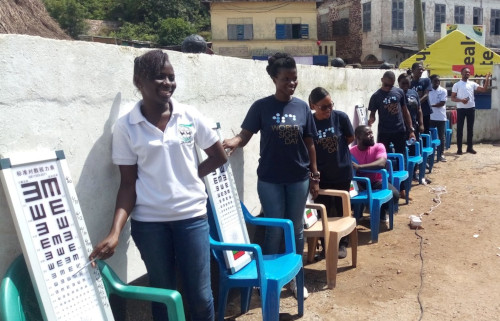
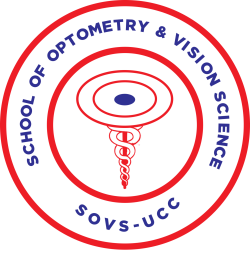

Project Name: Jutiapa Region Optometry Training Program
Grant Recipient: Vision for the Poor
Country of Implementation: Guatemala
Estimated Number of People Impacted: 50,000+ each year
Project Overview
Vision for the Poor has been awarded a grant to train 14 optometry technicians to become primary care optometrists to staff a new network of six vision centers and an eye hospital/optical lab being created in the Jutiapa region of Guatemala. Each vision center will have two optometrists providing clinical care and community outreach. Temporary staff, centralized eyeglass production, and patient referrals will ensure continuous care during the one-year build and training period.
With a proven track record of establishing sustainable vision centers in partnership with local hospitals, Vision for the Poor is uniquely positioned to scale its impact.
Objectives
- Train local optometry technicians as primary care optometrists
- Newly trained optometrists to work at new eye hospital/optical lab and six vision centers in regional areas
- Perform additional vision screenings in community and schools
- Distribute eyeglasses produced at the hospital’s optical lab
Expected Outcomes
- Establish a fully self-sustaining network of vision centers, an eye hospital, and optical lab
- Provide accessible, high-quality eye care to nearly 1.9 million people in the region
- Each vision center will serve approximately 6,000 patients annually
- The eye hospital will care for around 15,000 patients each year
- Long-term monitoring of patient volumes, treatments, outreach, and operational efficiency
Sustainability
The project’s sustainability stems from its locally led, data-driven model that keeps each hospital and vision center self-funding. Adapted from the Aravind Eye Care System, the organization has refined clear annual benchmarks—covering patient volume, glasses sales, and procedures—validated through decades of record keeping and external audits. This high-volume, cross-subsidized approach, in which patients pay full price, partial price, or nothing based on ability, ensures financial stability while maintaining equitable access to care.
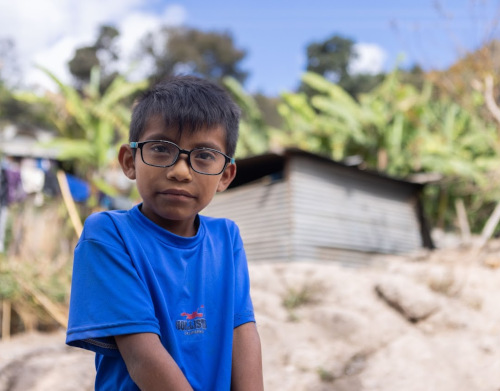


Project Name: Specialty Contact Lens Clinic to Train UNAN Students and Graduates
Grant Recipient: Volunteer Optometric Services to Humanity (VOSH)/California
Country of Implementation: Nicaragua
Estimated Number of People Impacted: 400,000
Project Overview
VOSH/California has been awarded a grant to establish a Specialty Contact Lens Clinic within the Visionary Clinic in Managua, Nicaragua. This initiative will expand access to advanced contact lens services for underserved patients while providing hands-on training to optometry students and graduates from the National Autonomous University of Nicaragua (UNAN). The university’s optometry program was founded in part by OGS.
The project addresses a critical gap in Nicaragua’s eye care landscape. By introducing scleral and rigid gas-permeable contact lens fitting for keratoconic, dry eye, and progressive myopic patients, the Visionary Clinic will offer services previously unavailable in the country, at an affordable cost.
Objectives
- Train UNAN optometry students and graduates in specialty contact lens fitting
- Provide low-cost, high-quality care to patients with complex visual needs
- Establish sustainable referral pathways across Nicaragua’s optometric community
Expected Outcomes
- Equip the clinic with an Eaglet Eye topographer and OCT with anterior segment attachment
- Launch training sessions beginning October 2025
- Accept referrals from over 200 UNAN graduates and regional clinics
- Track impact through patient fittings and student participation
Sustainability
The Visionary Clinic operates independently from UNAN, allowing it to charge for services and maintain financial viability. VOSH/California has reserved additional funding and will continue fundraising to support future expansion. The clinic’s leadership and partnerships with manufacturers in Costa Rica and the U.S. ensure long-term access to specialty lenses and supplies.
This project not only elevates the standard of optometric education in Nicaragua but also brings transformative care to thousands of patients who previously had no access to specialty contact lenses—advancing both equity and excellence in global vision care.
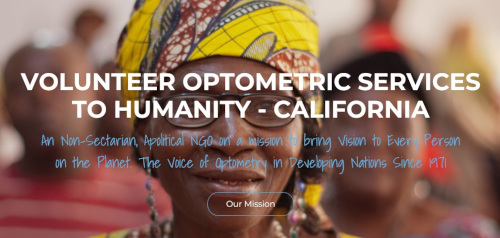
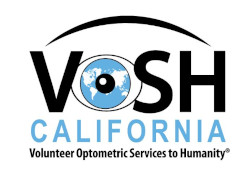

Project Name: Optometry Program in Advocacy and Leadership (OPAL)
Grant Recipient: World Council of Optometry (WCO)
Country of Implementation: Global Virtual Program
Estimated Number of People Impacted: 45 in year one and more in subsequent years
Project Overview
The World Council of Optometry has been awarded a grant to expand Optometry Program in Advocacy and Leadership, its globally recognized initiative that equips optometrists with the skills to lead sustainable vision care advocacy programs in their home countries. This year’s cycle introduces a new post-graduate track for alumni, offering advanced seminars and mentorship to deepen the impact of the program.
The program is a 12-week virtual course that brings together optometrists from across six global regions. Through expert-led sessions, personalized mentorship, and a capstone advocacy project, participants gain the tools to influence policy, strengthen public health systems, and champion equitable access to eye care.
Objectives
- Train optometrists to lead sustainable vision care advocacy initiatives
- Strengthen leadership and communication skills for public health impact
- Align global optometric efforts with WHO’s Integrated People-Centered Eye Care framework
- Support post-graduate alumni in advancing their advocacy projects
Expected Outcomes
- Enroll 30 new participants and 10 alumni in the 2025 OPAL cycle
- Deliver 10 expert-led virtual sessions and personalized mentorship
- Develop 40+ advocacy capstone projects addressing local and national eye care challenges
- Foster global collaboration through WCO’s Public Health Committee and regional networks
Sustainability
OPAL is embedded within the World Council of Optometry’s strategic plan and offered as a benefit to members of the council. The program cultivates future leaders who continue to engage through alumni networks, mentorship, and collaborative projects. Past graduates have launched impactful initiatives—from school-based screening programs in Tanzania to policy reform efforts in Greece—demonstrating OPAL’s enduring influence on global optometry.
This initiative not only empowers optometrists to advocate for change but also strengthens the global movement toward universal eye health—one visionary leader at a time.
